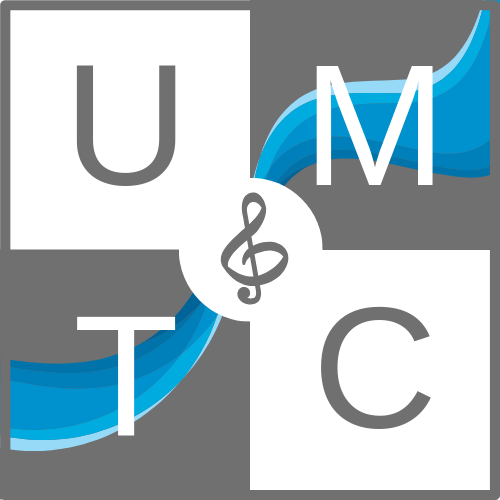When you think about music therapy and special education, what comes to mind? Maybe you think of a child who sang before they spoke or another who marches with confidence to a rhythm when learning to walk.
As music therapists, we aim to play on your child’s team. It is our goal to understand and support your child across all domains and services. In this blog, we will share quotes from service providers in schools outlining their experiences with music therapy.
Music Therapy and Academics
Music therapy is a wonderful means for supporting my student’s academic needs. During the summer months of virtual teaching, [the music therapist] and I collaborated to provide a morning meeting group lesson. Together, we targeted academics such as the days of the week, months, and seasons. I reached out to [the music therapist] for content-based songs that related to our weekly summer units. [the music therapist] has also written songs to help students work toward their IEP goals, such as songs about various shapes. Music therapy sessions provide many opportunities for learning to make choices and answer yes/no questions, which is a main component of my student’s educational program. Collaboration with the music therapist has been essential to helping my students achieve their learning goals! Colleen, Special Education Teacher
Music Therapy and Physical Therapy
“Music therapists coordinate with PT to figure out positioning for access points with very involved students. Positioning in wheelchairs or other adapted equipment is important for success in music therapy. Music also can be such a motivator for students to move or engage in a movement activity when a verbal direction isn’t as effective.” –Paula, Middle School Physical Therapist
Music Therapy and Vision Therapy
“Working with students with vision impairments we try to utilize their other senses as much as possible. Music is motivational and can be used in so many ways. I have older students that rely on voice over and developing quality listening skills when they are young is critical. When students enjoy an activity like music, we are able to incorporate more challenging tasks such as communication. The carryover from one setting to another is important for long term success.” –Darcy, Vision Therapist
Music Therapy and Alternative & Augmentative Communication
“This summer, [the music therapist] and I did co-treats between music and speech services via teletherapy Zoom. This included assisting a student in writing lyrics to a song that he wrote for a friend. By incorporating screen share and modeling of core words on the device along with sung lyrics, the student was able to drive the content of the session and compose and edit his song the way he wanted it to be. The result was an impressively emotional piece of art! With [the music therapist’s] help we also created a new music page for speech generating devices that included buttons for song choices, music descriptors (louder/softer, faster/slower), instrument choices, music actions (sing, dance, listen, play.)”–Paris, High School SLP
Music Therapy and Speech Therapy
“I have had the pleasure of doing music/speech co-treats for a year now. During that time frame, we have collaborated to help our students communicate more efficiently in a low-stress environment. By collaborating together, the students have been able to use a combination of voice/word approximations, low tech, and high tech to express a variety of communication needs. Having music as an option kept our environment flexible, encouraging, positive, fun, and reduced the amount of stress and pressure the student might feel to comply… There was a noticeable difference in student behavior and attitude when music was incorporated to speech sessions.” –Natasha, Middle School SLP
“Music and speech therapies perfectly complement each other! Music therapy allows our students to learn and practice using their communication systems in an incredibly motivating way. Collaboration is a key part of supporting our students especially in developing personalized music pages on each student’s communication system and in carrying communication skills over to the classroom setting! Music therapy has also been instrumental in teaching our students to use core vocabulary or words that are frequently used across all contexts. Music inspires communication!” -Julia, Elementary School SLP
Music Therapy and Orientation & Mobility
“[The music therapist] and I shared a student who was highly motivated by songs and singing but was less motivated by the idea of practicing proper white cane mechanics while walking during O&M class. I reached out to [the music therapist] and shared some white cane terms and phrases that she turned into a song that the student loved to sing. I recorded it on my voice recorder and carried it with me on lessons to help motivate [the student] when needed and the beat helped improve her mechanics. This student also struggled with left and right directions, so I again reached out to [the music therapist] and she helped create a song that had meaning to the student. We were able to practice it regularly before and during lessons to help reinforce this important concept because [the student] had so much fun singing and performing the movements associated with it.” –Janie, O&M Specialist
As Music Therapists, we try our best to ensure we are appropriately servicing your child. We never want to contradict the goals and objectives of another service provider, and as such we always communicate across the team. In an ideal scenario, Music Therapists tighten the connections across a whole team.
If you are an educator, parent, or service provider who thinks music therapy may be beneficial on your student’s or child’s team, do not hesitate to reach out. Click here or email Amy Thomas at amy@upstatemtc.com to get the conversation going!
Blog was written and interviews were conducted by Katie Pistilli.

